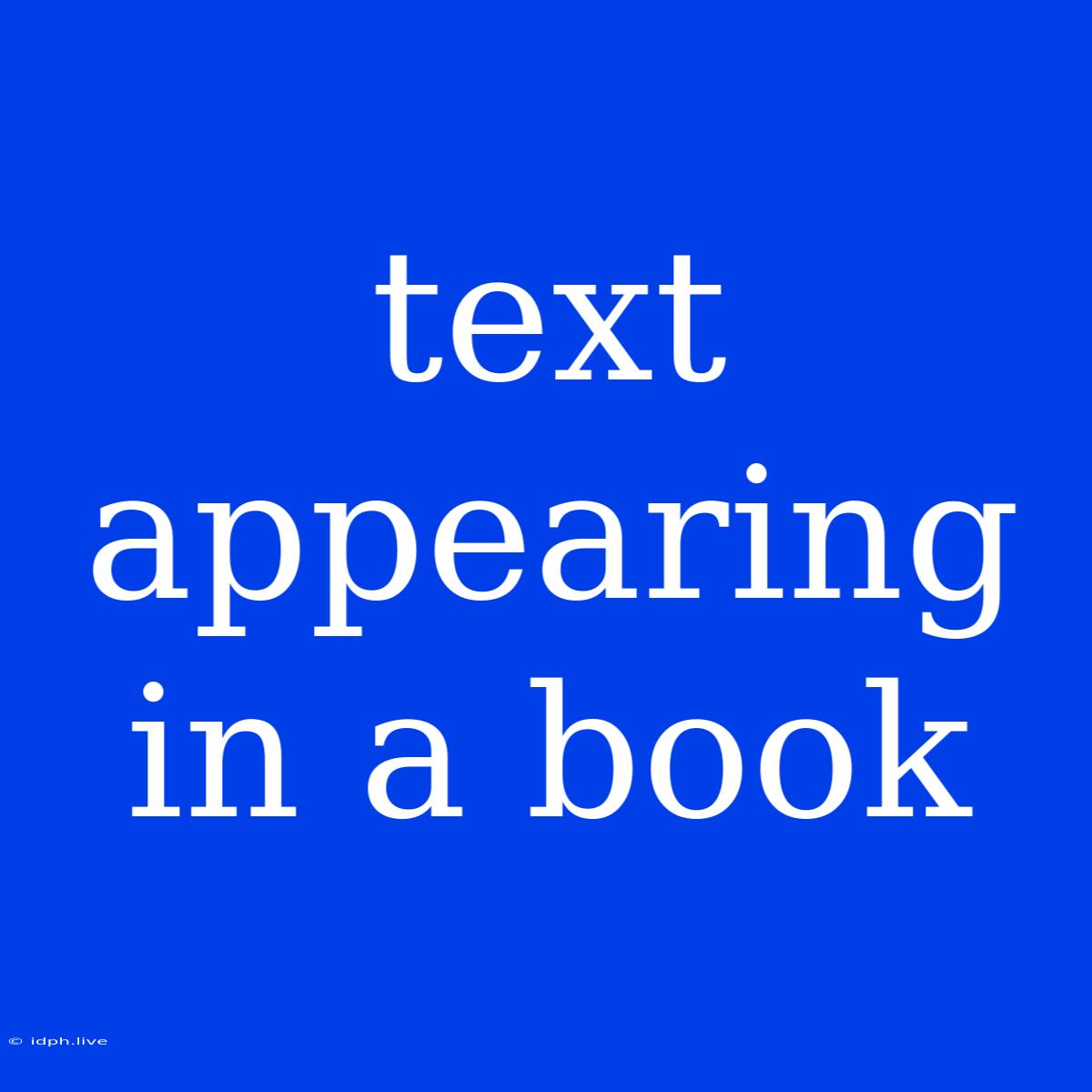The Magic of Text Appearing in a Book
Have you ever wondered how text appears in a book? It's a seemingly simple process, but it involves a fascinating interplay of technology and artistry. From the initial writing to the final printed page, a book's text undergoes a journey that's both intricate and captivating.
From Manuscript to Print
1. The Author's Hand: The journey begins with the author, their imagination churning out words that will eventually find their way into a book. They might use a pen and paper, a typewriter, or a computer, but the essence remains the same: ideas taking shape on the page.
2. The Editor's Eye: Once the manuscript is complete, it's sent to an editor. This skilled professional scrutinizes the text, refining its structure, grammar, and clarity, ensuring the final product is polished and engaging.
3. Setting the Type: The manuscript is then sent to a typesetter, who carefully converts the words into a format suitable for printing. This process often involves using specialized software to determine the font, size, and spacing of the text, ensuring readability and visual appeal.
4. The Printing Process: Finally, the text is ready for printing. Depending on the type of book, different methods might be used, such as offset printing, digital printing, or even traditional letterpress. Each method has its own unique advantages and contributes to the overall look and feel of the printed book.
The Importance of Typography
Typography plays a crucial role in how we experience text in a book. The choice of font, font size, and line spacing can significantly influence readability, mood, and even the perceived message of the book.
1. Readability: A well-chosen font enhances readability, making the text easy to absorb and reducing eye strain. Clear spacing between letters and lines helps with comprehension and flow.
2. Visual Appeal: Typography contributes to the overall aesthetic of the book. A bold font might be used to highlight important sections, while a more delicate script might be chosen for a romantic novel.
3. Setting the Tone: The choice of font can subtly influence the reader's perception of the text. A whimsical font might suggest a light-hearted story, while a serious font might indicate a more complex and weighty narrative.
The Evolution of Text in Books
The way we experience text in books is constantly evolving. The rise of e-books has brought new possibilities, allowing readers to adjust font size, lighting, and even the layout of the text. While traditional books still hold a special place in our hearts, the future of text in books promises even more interactive and personalized experiences.
The Power of Text
Ultimately, the text is the heart of a book. It carries the author's voice, ideas, and emotions, transporting readers to different worlds and offering unique perspectives. The journey of text, from the initial scribbles to the printed page, is a testament to the power of words to inform, inspire, and entertain.

